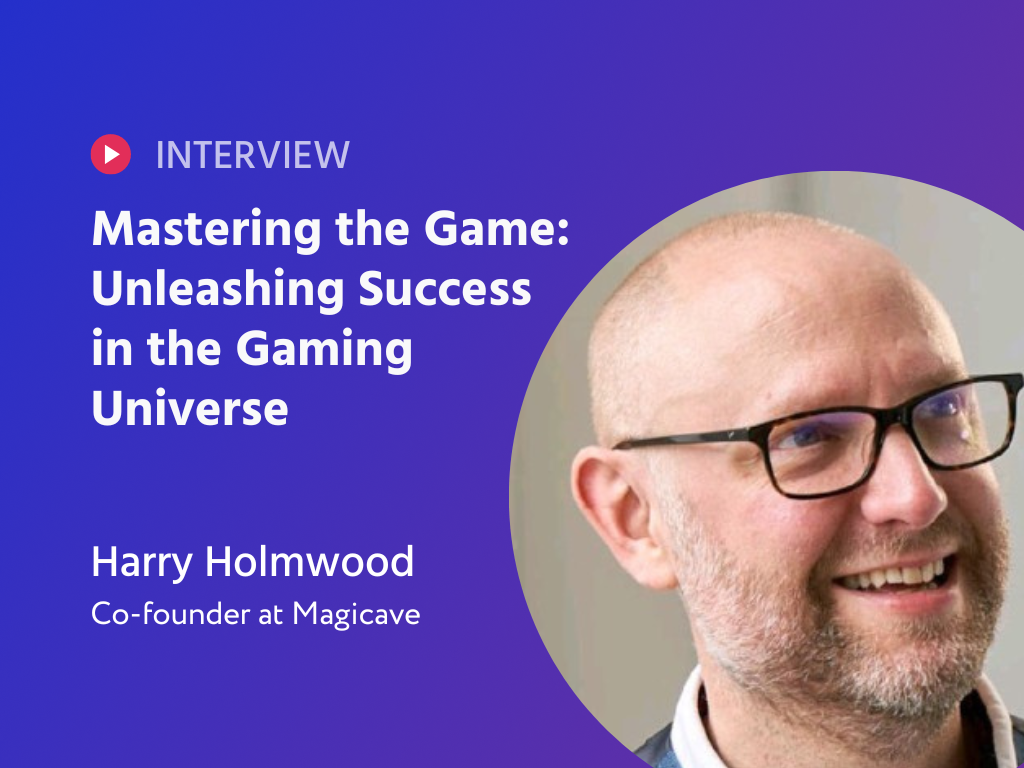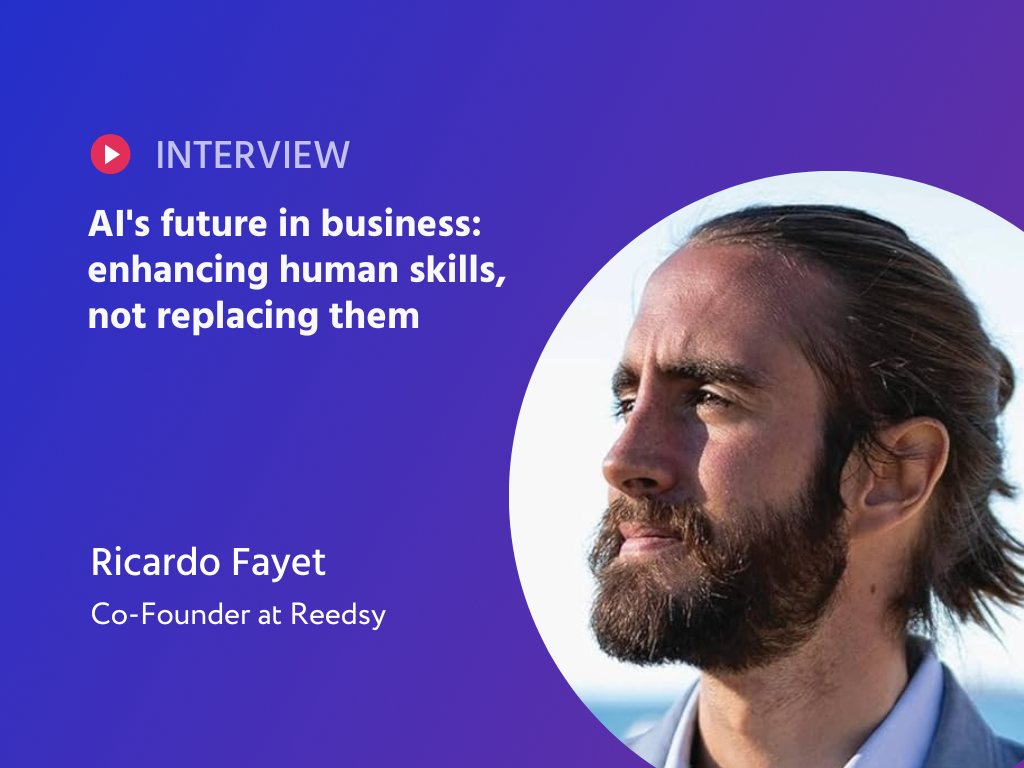Gathr assists event organizers in organizing, funding, and marketing their events, as well as booking creatives, performers, filmmakers, authors, and lecturers.
Gathr has dominated the tech-driven event cinema market with Theatrical On Demand® since August 2011, delivering hundreds of films in thousands of theaters across the United States, Canada, the United Kingdom, Australia, and New Zealand.
To learn more about Gathr, we sat down with CEO and Founder Scott Glosserman, who shared his experiences breaking into the tech industry without a traditional tech background, the importance of learning by doing, strategies for overcoming startup doubt, and the reasons why the book publishing industry will never be the same.
A Warm Welcome
"Behind the mask, Lesley Burnett's rise" was Glosserman's first film as a director and producer. Glosserman's background far exceeds Gathr's Head of Product.
Whilst making independent documentaries and films, he realized then back in 2010 how the movie distribution model had fully broken down. As a result, he created a product named "theatrical on demand" effectively a movie crowdsourcing concept in which they would assemble critical masses of theatergoers.
So Glosserman and his crew went out and struck business deals with every cinema in the United States and the English-speaking areas in order to buy films for distribution. A real win-win.
We developed a democratized bottom-up model for theatrical distribution to complement the traditional top-down one
“Meaning that you can buy a perception of value, acquire all of your media and marketing by booking theaters, and then actually drive money and impact by having emotionally connected people pull, "gather" the material to where they were. That was the basis of my original notion for Gathr films.”
The concept was genius, the timing… not so much
Gathr was Glosserman’s silver bullet for addressing organic demand for people's films everywhere. However, over the ten years that they were developing and expanding their product, from 2011 to 2021, the entire economics of the sector altered dramatically.
Netflix and the other most popular services entered the market, and even US cable networks that had never acquired films became pay cable and subscription and transactional VOD. At the same time, theaters were being crushed by home entertainment, resulting in the improper product market fit.
"I thought I had a brilliant idea. But it turns out that I was incubating the big idea rather than addressing a $12 billion domestic movie industry."
Instead of giving up, Glosserman’s returned to the drawing board and sketched out his options.
So, before the end of 2019, the Gathr team decided to broaden the scope of the event to include all events and all talent.
"Since we already had event creation, ticketing, and event management, what if we could add an airbnb for talent booking component, allowing any performer, lecturer, or subject matter specialist to control their own time in fees and experience demand."
In April 2020, the Gathr team invented a technique of putting a live synchronized film premiere behind the transactional tickets paywall for everyone viewing across the world, allowing consumers to shift from the uncompressed live film.
Put together by April 2020, the Gathr team took the time to refine it throughout the next few years.
We now have this fantastic virtual exhibition platform
Ahead of the pack
“I imagine we're a Ferrari engine, but really we're in a Ford Pinto. And this is because we have this wonderful technology that no one else has, but not a load of people know about it...yet.”
We put the things out there that no one else has
The concept of talent booking is simply the use of technology to satisfy demand and increase operational efficiency for your own event personal appearances. But what we're attempting is to include products into events in the same manner that you might go to a concert and see the event.
Book publishing will never be the same
With the book launch on the verge of extinction, and all prior opportunities for profit shattered, Glosserman and his team spotted a hole in the market and leaped in - the book publishing sector.
Modern technology and life after Covid have forever altered the industry
“Imagine you're a major publisher, and there's this big new author, back then the bookstores would traditionally take the individual and create a book launch event. It costs the publisher a fortune to travel with the author, especially if it is done on a worldwide scale.”
Glosserman tells how an independent bookshop will acquire books directly from the publisher, host the author (for which the publisher will pay), and then attempt to sell copies. It was COVID which of course put a stop to this and as a result, the author's book publisher was forced to put it all on Zoom.
Since Zoom lacked a transactional ticketing paywall, the book publisher was unable to sell books. But the whole purpose of the book launch is for independent shops to acquire a large number of copies, sell and transact them, which publishers cannot do themselves.
“They wanted a mechanism for an event platform to book writers and pay them separately while transacting on the books.”
Authors can now design their own book launches using our resources
Book authors can now self-distribute in the same way as filmmakers. We're the transforming pillar
The Trick to Surviving Self Doubt
Self-doubt is defined as the incapacity to believe in one's own abilities and potential. It's a mindset that more often than not keeps us from reaching our goals and believing in oneself.
That little voice of self doubt often sneaks in when you are ready to make a decision that will change your life forever. "What if I mess up? What if I come across as a moron?”. Glosserman starts by telling there has to be a concerted effort to own the definition of success.
“We have to own our definition of success because it is really the thing we are doubting. You are doubting your ability to reach your objective, which in your mind, is what success represents.”
Success is just progressively pursuing a desirable ideal or aim
“It's all about the journey, not the destination, as long as you're going forward toward a goal. If the goal is eventually desirable, honorable, and significant, then pursuing it is a success."
Glosserman tells how when you are developing your tactics for success, this is often when self-doubt sneaks in. You wonder if there's something you're missing. It is important, however, to realize that doubting one's own talents is universal to the human condition and totally acceptable.
“If the goal is worthwhile, and you spend every minute pursuing it, you'll be successful, and your self-doubt will vanish.”
How many people does it take to build a roof?
As a non-technical professional, Glosserman saw this as his biggest weakness.
I was a Filmmaker not a Tech professional
“Take for example, I could look at a roof and without knowing how to build a roof, I can see it's a pretty big roof, and can make my estimates concerning how long it would take to build if only I had one person at the ready, probably stretching over a few weeks, but if I had 70 people at work, it could take three days.”
But, in contrast, he didn't know whether building a shopping cart would take one day or three weeks. Because of this, he ended up overspending and took too long to construct the original code.
If I threw five people at it, would it go faster or slower?
Glosserman explains how these flaws contributed to the initial code not being constructed in an elegant manner, with multiple languages in the code and no sitemaps.




